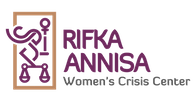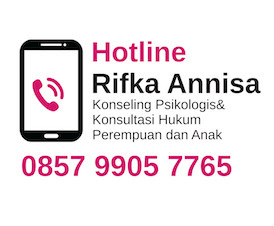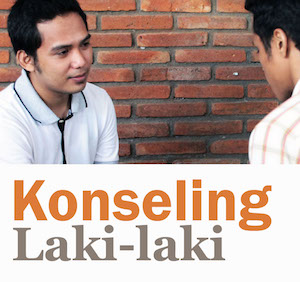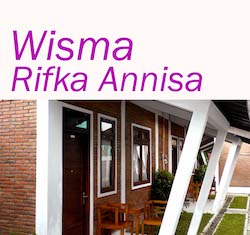Assistance for Women and Behavioral Counselling for Men
Assistance in this context consists of counselling aimed at maintaining the female client’s legal and psychological well-being. Additionally, our aim is to provide survivors with the knowledge and skills necessary to strengthen them and to prevent further violence. This assistance can be provided face-to-face, or a client can contact Rifka Annisa via post, email, or telephone.
In addition to the assistance of women clients, Rifka Annisa also provides behavioral counselling for men, the aim being to eliminate domestic, gender-based violence. Breaking the chain of violence will be more effective when both parties—the survivors and the perpetrators—are involved. Our male counselling efforts emphasize the importance of men taking responsibility for their offences. Through these efforts, we work to change his mindset and behaviour to be more gender-equal, supportive, opposed to violence, and respectful of women.
Following are some programs related to assistance:
Psychological counselling
Psychological counselling provides assistance for the survivors of violence—women and children—focusing on psychological recovery.
Legal consultation and assistance
This assistance is provided to women and children to help navigate the obstacles that may arise throughout the legal process. In criminal cases, assistance is given directly, while in civil cases, the assistance is given indirectly.
Safe Shelter
The safe shelter is built for women vulnerable to violence and survivors whose lives are still endangered.
Outreach Service
An outreach counselling service is provided for those clients who cannot access the service at Rifka Annisa's office due to a variety of reasons, such as personal hardship or client confidentiality.
Behavioral Counseling for Men
Male clients may come of their own accord or upon court mandates with the purpose of ending violent behavior.
Support group
Clients get together to strengthen and support one another and to encourage behavioral changes. Materials needed for this support group are customized in accordance with the group's characteristics.
Research and Training
Along with raising awareness about sexual violence, there is a growing need to improve the discourse and skills around gender-equity work. Our research, facilitation, and training are conducted with the intent of encouraging improvements within the fields of women and gender studies. This process also incorporates special programs dealing with research and training to develop the resources necessary to combat violence against women. The following are the various services and activities that the program provides:
Consultation Service
Rifka Annisa provides consultation services for the purposes of study, research, evaluation and capacity building. Rifka Annisa has a group of experts—female and male—with expertise in women’s studies, early childhood development, and community advocacy and organization. Through this service, Rifka Annisa is able to share expertise with other organizations and groups, including strategic planning, women’s crisis center management, monitoring and evaluation, gender audits, etc.
Facilitation Service
Requests for facilitation come from various institutions and communities. Among the requests for facilitated discussions, topics include the following: prevention and handling of gender-based violence against women, gender socialization, counselling, and men’s involvement. The themes and details of these programs are discussed in advance for optimal performance.
Internship Program
An internship program is available in all institutions, specifically for people interested in contributing research to and/or deepening knowledge regarding women’s studies, crisis centres for women survivors, community organizations, and advocacy for men’s involvement.
Research and Research Facilitation
The purpose of this program is to support ideas for eliminating violence against women, including facilitating men’s involvement in gender justice and equity discussions and initiatives. Rifka Annisa aims to promote this male engagement through research on positive masculinity. Comprehensive research has been conducted on the following: monitoring of the implementation of the Law on the Elimination of Domestic Violence (UUPKDRT) in seven provinces (2007); survey-based research on health and domestic violence in Purworejo (2002) as published in Silence for the Sake of Harmony (2001); masculinity of Javanese men published under the title of Being A Man (2007); survey-based research on health and men's masculinity in three cities (Purworejo, Jakarta, and Jayapura) (2012-13).
Manual Production
Manuals provide guidance for the implementation of particular programs such as counselling or other programs aimed at eliminating violence against women. We have produced some manuals for counselling men and women, peer counselling training, migrant workers’ assistance, and gender analysis.
Technical Assistance
Assistance in this case is a process of following-up on training and internship. Rifka Annisa helps its partners in different ways by sharing previously acquired knowledge, like legal and psychological assistance, crisis centre management, and its administrational and financial management.
Training
A lot of trainings are held in order to share expertise with other organizations and groups in order to eliminate violence against women. The trainings include discussions on gender, gender analysis, counselling for survivors and perpetrators, advocacy, women’s crisis centre management, training of male counsellors, client monitoring and evaluation, and peer counselling.
Community Organization and Advocacy
Survivors are part of the community. Therefore, efforts to eliminate violence against women cannot be sufficiently accomplished by crisis centres alone. The community plays an important role in the elimination of violence against women. They are the most effective leaders when combatting this issue.
Communities or social groups who care about gender equity and understand the importance of eliminating violence against women will bring about an incredibly positive impact. Particularly in cases that deal with violence, survivors will be able to receive positive support from their social environment.
Work organizations in the form of community assistance are necessary in enabling communities to take the lead in attempting to eliminate violence against women. This assistance is conducted so that society is aware of gender equity and the many positive changes that stem from it.
This group assistance has operations in the following locations: Paguyuban Bangun Tresno in Dusun Kadisoro, Gilangharjo, Pandak, Bantul and Kelompok Sida Rukun in Dusun Klisat, Srihardono, Pundong, Bantul. Those groups actively carry out discussions, case assistance, cultural campaigns, and training.
In the advanced step, these assisting groups are expected to serve as community-based crisis centers capable of solving problems related to violence against women in their respective areas. One of the community based crisis centers (CBCC) assisted by Rifka Annisa is Kelompok Mudi Lestarining Budi, Playen, Gunungkidul and Huriya Maisya, Cokrodiningratan, Jetis, Yogyakarta. They monitor, prevent, and provide the first response in helping the survivors. Rifka Annisa’s role is to assist with capacity-building and to facilitate the development of networks between CBCC groups and relevant institutions, community health centres (Puskesmas), and local police.
Besides taking care of societal problems, community organization is needed for policymaking efforts concerning advocacy programs. Advocacy is an effort to encourage policies or modify the existing ones. Organizations are imperative for the facilitation of interest groups and, both in gathering and providing support during the advocacy process on pertinent issues.
One of the most successful advocacy programs started in 1999 with the initiation of tripartite service among hospitals, police, and Rifka Annisa, which became the embryo of integrated service for violence survivors. Other initiatives include the enactment of the Law on Elimination of Domestic Violence; City Mayor Regulation No 62/2007 on integrated service for gender-based violence and trafficking survivors; Revision of Technical and Administration Guidebook for Religious Courts; and Regional Regulation No. 25/2012 on Protection of Women and Children Survivors of Violence in Gunungkidul. In implementing advocacy, we work together with other organizations such as Non Government Organizations (NGOs), Government Institutions, local communities, universities, etc. We also run campaigns on the importance of policy design and subsequent implementation. After several years of joint action aimed at positive changes to the enactment of certain laws, we encountered success.
Elimination of Violence Against Women Campaign
Our campaigns are aimed at building awareness for women and men. For women, the content of the campaigns focuses on informing them of the rights of survivors, while for men the content emphasizes positive masculinity and raises awareness of the necessity to eliminate violence against women. We use various print and electronic campaign media such as leaflets, booklets, posters, film, radio and television. These media efforts are used to build people's critical awareness and to solicit their support in eliminating violence against women. Here are some campaigns methods conducted by Rifka Annisa:
Rifka Goes to School & Campus
This monthly socialization program aims to introduce basic knowledge regarding gender issues. The objective is that the participants are able to recognize and prevent violence. Understanding the measures one must take when encountering violence is likewise important. A school may request this socialization program, or Rifka Annisa may take its own initiative in leading one.
Radio and Television Broadcast
Television and radio are familiar and effective media in reaching members of society. Therefore, they are utilized strategically in campaigns of anti-violence against women.
Rifka Media
Rifka media is a magazine intended to be a learning source and reference on issues related to gender and the elimination of violence against women. This magazine has been published since 1998 and is issued every three months.
Website and Social Media
The existence of media that can be accessed anytime is imperative to the dissemination and reach of information. Thanks to the internet, websites, blogs, facebook and twitter are all great tools for spreading information about gender issues and initiatives to end violence against women.
Policy Brief
This division works enthusiastically to network and to employ mass media as a means of raising awareness on the issue of violence against women. Therefore, Rifka Annisa periodically states their opinion on cases in the public spotlight. The case will be analyzed deeply in a policy brief.
Media Release
Releases are generated in accordance with activities conducted by Rifka Annisa. Releases, including those aimed at the media, also provide background, description, and details of various activities.
Women-Related Event Celebration
On International Women’s Day (March 8), Kartini's Day (April 21), and International Day for the Elimination of Violence against Women (November 25), Rifka Annisa often carries out various events. The objective is to raise people's awareness about sexual violence as well as to introduce Rifka Annisa's services to the greater community.
Media Regular Discussion
This discussion is routinely organized with the intent of enriching the discourse regarding the elimination of violence against women. This program invites speakers from Rifka Annisa or other institutions, and it is open to everyone.
Site Visit
As the first Women’s Crisis Center in Indonesia, Rifka Annisa is often a point of referral for institutions and education centers both from Indonesia and abroad. These referrals and visits are complete with materials on crisis center management, efforts to eliminate of violence against women, and Rifka Annisa's many programs.
Rannisakustik
Rannisakustik is a music community committed to campaign for and to disseminate information about the elimination of gender-based violence against women. This group has performed at many concerts and song composition workshops, and they have regularly taken part in the Rifka Goes to School programs.







